
In this post, I’ll show you EXACTLY how to get higher rankings in Google.
In fact, this is the same process I’ve used to rank #1 in Google for “SEO checklist”:

And “link building tools”:

So if you want to rank higher in Google in 2024 and beyond, you’ll love this new guide.
How Does Google Rank Pages?
Google’s ranking algorithms are designed to sort through billions of webpages to meet search intent. By offering the most relevant and useful results within the shortest time possible.
Google uses algorithmic processes that consider many different factors to evaluate the quality, relevancy, and utility of an answer to a search query.
These algorithms are extremely complex. But forming a comprehensive SEO strategy—and following the steps in this guide—can help you rank higher on Google.
Step #1: Improve Your On-Site SEO
Here’s the truth:
On-Page SEO is one of the FASTEST ways to improve your Google rankings.
That’s because you can optimize your page in about 2 minutes. And start to see a rankings boost within days.
Question is:
How do you optimize your site around your target keywords?
First, make sure that your keyword is toward the beginning of your title tag.
Here’s an example:

This is called “Frontloading” your keyword.
Why is this important?
Well, Google reads your page title to help it understand what your page is about.
And so putting your keywords at the start can suggest to its algorithms that these words are the most important. And therefore what the page is relevant to.
For example, my target keyword on this page is “SEO copywriting”:

As you can see, my title tag starts off with that keyword.

It’s not always possible (or logical) to have the target keyword immediately at the start. But generally, the closer to the start, the better.
Rankings aside, it also helps a user skimming through search results instantly understand what your page is about. Which may make them more likely to click.
Second, aim to create long-form content that comprehensively covers your target topic.
Our analysis of Google’s key ranking factors found that the average Google first page result contains 1,447 words.
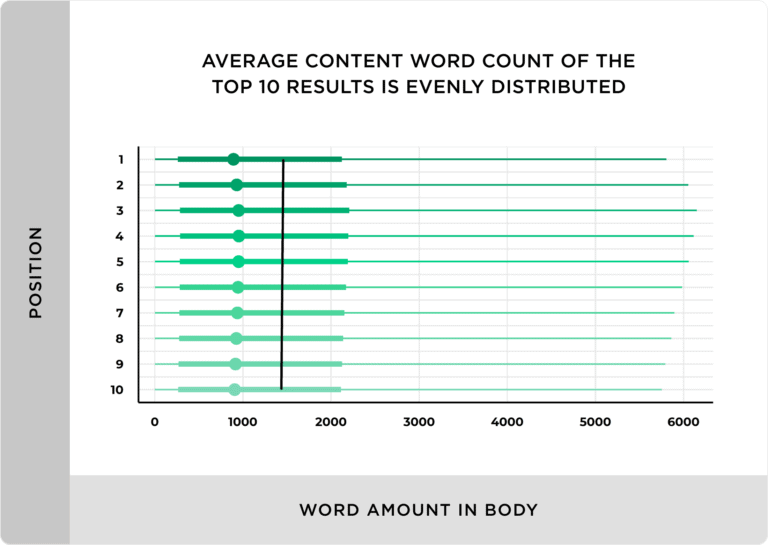
And I can tell you from experience that longer content does tend to rank best in search engines.
For example, one keyword that we rank #2 for is “Mobile SEO.” And this is a REALLY competitive keyword.
I’m competing against giant authority sites like Semrush and Search Engine Journal.
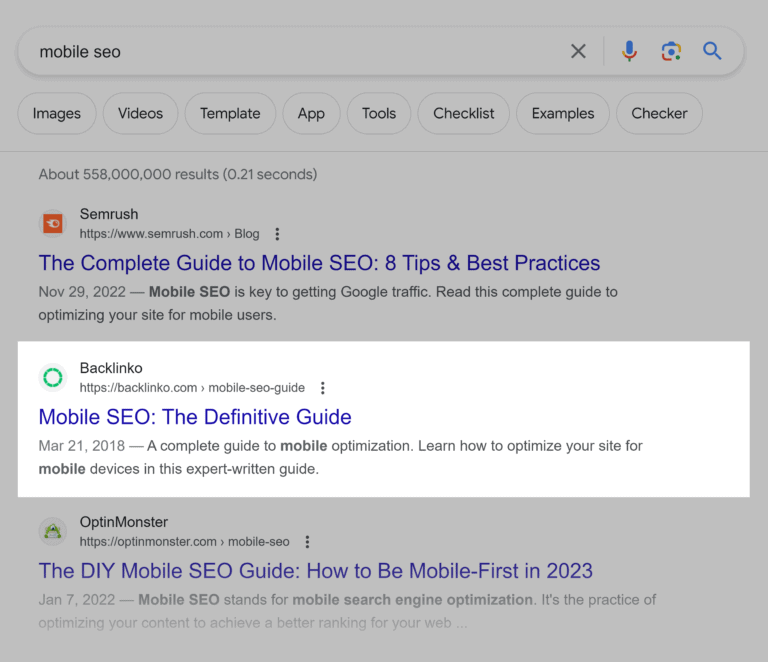
This is why I made sure my page covered EVERYTHING anyone would possibly want to know about optimizing their site for mobile devices.
In fact, my content is 4,330 total words.
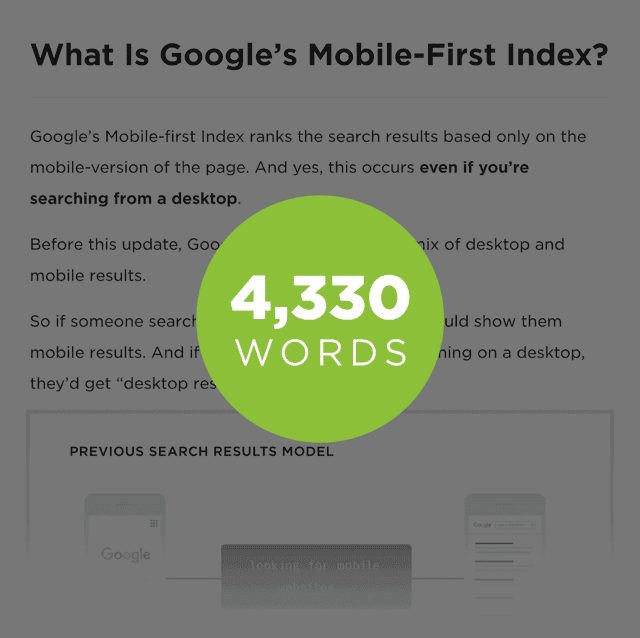
Obviously, there are times when long-form content doesn’t make sense (like for an ecommerce category page). But if you can publish long content you generally should publish long content.
Finally, add your keyword naturally throughout your page.
This isn’t about keyword stuffing or anything like that.
Instead, when you add relevant terms to your page, you tell Google:
“This page is about this search query!”
Which can help you get a nice rankings boost.
For example, I wanted to improve my rankings for the keyword “squeeze page.”
So I sprinkled that term a handful of times on my page where it made sense
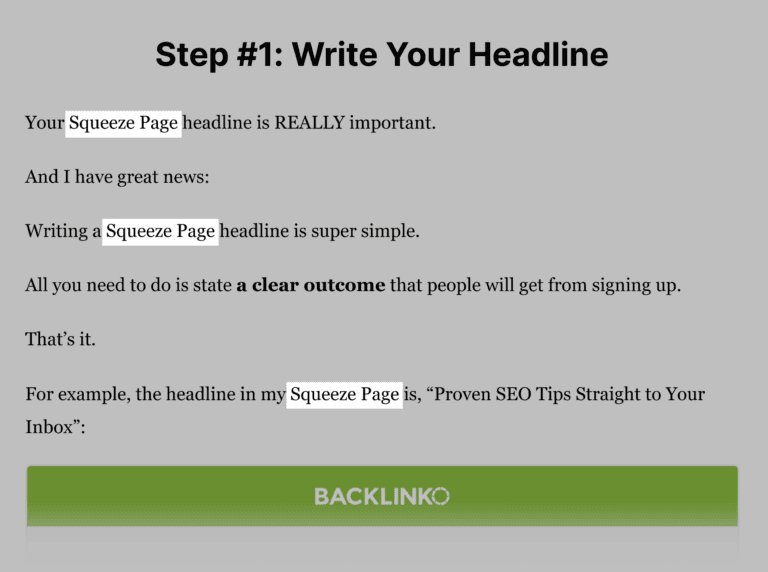
And that page now ranks pretty well for target terms:
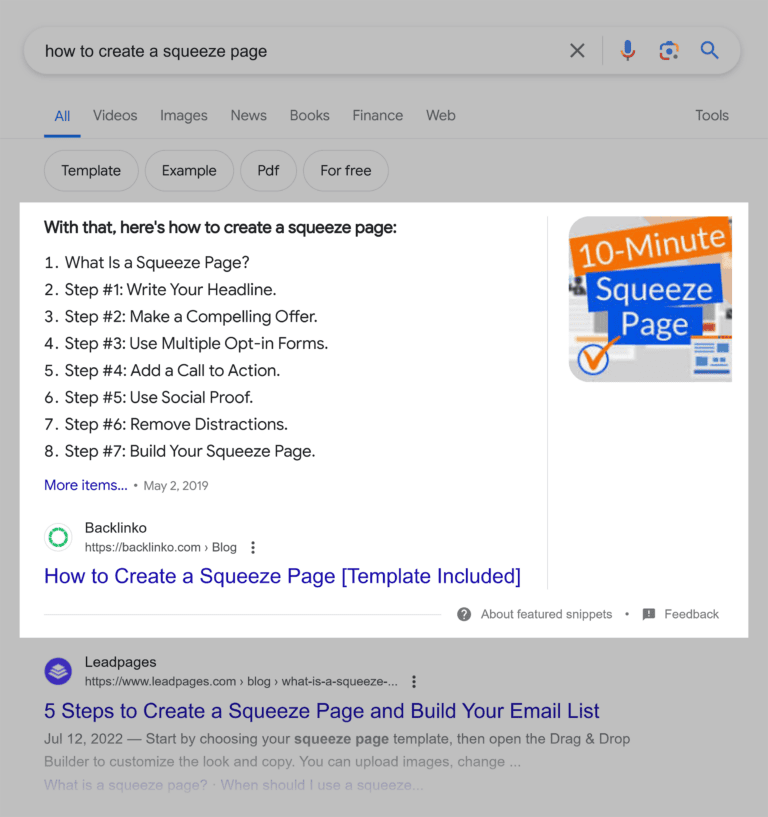
You can quickly check for a range of on-page SEO issues with Semrush’s On Page SEO Checker.
It’ll provide you with an overview of your top pages to optimize. And give you insights into your potential traffic gains if you make the right changes.
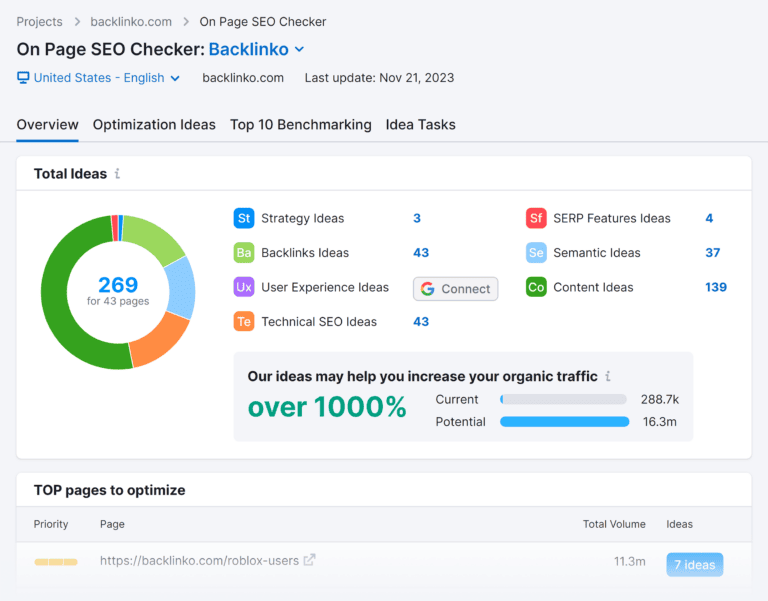
It’ll even show you a list of ideas for these pages. Covering various aspects of on-page SEO.
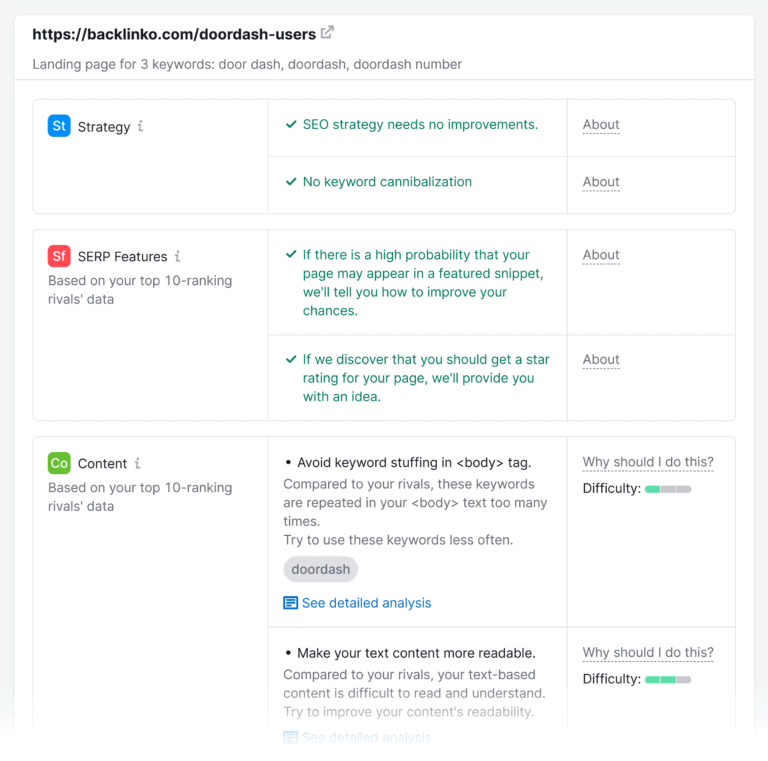

very valuable post . you may also visit mine for more visit https://ridam.pidmtraining.com/